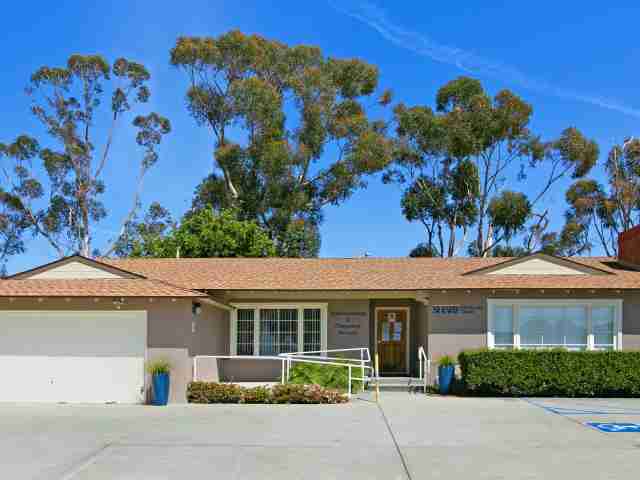More About Rehabs Accepting Anthem
More About Rehabs Accepting Anthem
Anthem is one of the largest health insurance providers in the United States and is part of the Blue Cross Blue Shield network, a federation of independent health insurance companies.(1)
Anthem offers plans to individuals and families across many states, and these plans may cover some or all of the costs of mental health and substance use disorder (SUD) treatment.(1)
Many rehab centers accept Anthem insurance, but finding the right program for your specific needs can still feel overwhelming.
About Anthem
Anthem has deep roots in American healthcare. Its parent company, Blue Cross Blue Shield (BCBS), was founded in Texas in 1929 with the goal of making healthcare more affordable through a partnership between hospitals and patients.(1)
In the 1940s, Blue Cross and Blue Shield merged, expanding access to coverage nationwide. By the early 2000s, BCBS served more than 100 million members. Anthem offers many of the same benefits as BCBS, but its coverage is available in 14 states rather than all 50.(1)
Today, Anthem remains one of the country’s leading health insurance providers, offering a wide range of health plans—including Medicare Advantage—to support individuals and families across the U.S.(1)
Anthem Plan Options
Anthem, like most health insurance companies, offers coverage for substance abuse treatment.(1) This can include inpatient and outpatient treatment, counseling, and medication-assisted treatment.
The specific details of Anthem's substance abuse coverage will depend on your plan. You can contact Anthem directly or look at your plan's coverage details online to learn more about what services it covers.
Anthem additionally offers supplemental and limited-duration insurance plans.
- Bronze plans: These plans have lower premiums but the highest deductibles, resulting in higher out-of-pocket expenses. Anthem covers about 60% of the cost of care services after the deductible is met.
- Silver plans: These plans cost more in premiums but have lower deductibles and lower out-of-pocket expenses than bronze plans. Anthem pays about 70% of the cost of care services after the deductible is met.
- Gold plans: These plans have the highest premiums but the lowest deductibles and will have the lowest out-of-pocket expenses. Anthem pays about 80% of the cost of care after the deductible is met.
Anthem provides their plan members pharmacy coverage for prescribed medications, $0 preventative care, and $0 virtual care available 24/7. Members can also earn and cash out rewards for building healthy habits.1
Anthem, Medicare and Medicaid
Anthem Medicare plans are alternatives to Original Medicare, which is the federal health insurance program for people 65 or older and with specific disabilities. Anthem Medicare Advantage plans provide the same benefits as Original Medicare but often with additional benefits, such as vision, hearing, and dental coverage. Anthem also offers Medigap (Medicare Supplement) plans, which can be used to help cover the costs not covered by Original Medicare.
Anthem Medicaid plans are offered in some states to individuals who are eligible for Medicaid, which is a joint federal and state program that provides health coverage to people with low incomes. Anthem Medicaid plans typically cover a range of health services, including preventive care, doctor visits, hospital stays, and prescription drugs.
The specifics of what is covered by Anthem Medicare and Medicaid plans will vary depending on your plan and the state you live in. To find out more about what Anthem's Medicare and Medicaid plans cover, you can look at your plan's coverage details or contact Anthem directly.
What Types of Addiction and Mental Health Treatment Does Anthem Cover?
The addiction and mental health treatment coverage you receive under Anthem depends on the specific plan you have.
It’s a good idea to confirm your insurance coverage before seeking treatment, as each health plan is unique.
Here are types of rehab or treatment services that may be covered under your Anthem insurance benefits:(2,3,4)
- Medical detox. Typically, the initial step in treating addiction involves detoxification or “detox”. Detox entails the removal of substances from the body and is frequently performed under medical supervision to assist in managing the symptoms of withdrawal.
- Inpatient treatment. Inpatient care refers to treatment provided in a facility where the patient resides for the duration of their care. Inpatient rehab programs entail patients receiving 24-hour medical supervision throughout their stay.
- Partial hospitalization programs for addiction: Often referred to as a PHP, these programs provide the highest level of outpatient programming for those recovering from a substance use disorder. They typically require a significant time commitment, where patients attend treatment for 4-8 hours each day for at least 3 months.
- Intensive outpatient addiction treatment programs: IOPs are also a form of outpatient addiction treatment, however patients participate in treatment anywhere from 9-20 hours per week over the course of 2 months to a year, depending on their needs.
- Outpatient addiction treatment programs. Outpatient care refers to treatment where the patient visits a facility once or twice a week to receive services without staying overnight. Common services provided in outpatient care include group meetings and therapy sessions.
- Aftercare. Aftercare is the term used for care provided after completion of rehab. An instance of aftercare is sober living, where patients reside in a home free from substances with other individuals in recovery.
Anthem may also cover medication-assisted treatment (MAT) if it’s considered medically necessary. MAT (sometimes called medications for opioid use disorder (MOUD) or addiction treatment with medication) combines FDA-approved medications, including buprenorphine and methadone, with counseling and behavioral therapies to support long-term recovery from alcohol or drug use.
Does Anthem Cover Co-Occurring Disorder Treatment?
In addition to covering substance use disorder treatment, the Affordable Care Act (ACA) requires all health insurance plans to provide some degree of coverage for the treatment of mental health disorders.(5)
This is a valuable benefit for many patients entering into treatment, considering many may also be experiencing a mental health condition alongside their substance use disorder.
How to Use Anthem for Addiction or Mental Health Treatment
If you are seeking treatment for a mental health or substance use disorder and have Anthem health insurance coverage, it is important to understand how it can be used to cover some or all of the cost of treatment. Start by contacting your benefits provider to learn more about coverage. Many rehab centers may be able to verify coverage for treatment at their facility.
[sources]
- Anthem. (n.d.). About us.
- National Institute on Drug Abuse. (2020, June 3). Types of treatment programs.
- National Institute on Drug Abuse; National Institutes of Health; U.S. Department of Health and Human Services. (2019). Treatment approaches for drug addiction DrugFacts.
- Substance Abuse and Mental Health Services Administration. (2014). What is substance abuse treatment?
- HealthCare.gov. (n.d.). Essential health benefits.





































































